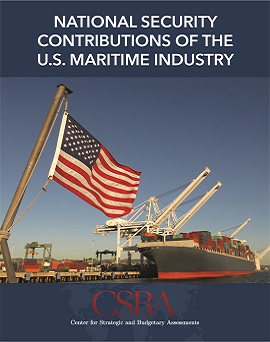
The United States has always been a maritime nation. Since its founding, Americans have taken to the sea for trade, to harvest the resources in America’s waters and seabed, and to defend or advance the country’s interests. A robust commercial maritime industry is essential to support these efforts, which enhance America’s prosperity and security.
Today, the U.S. maritime industry employs hundreds of thousands of Americans across the country, from the Atlantic and Pacific coasts, the Gulf of Mexico, the Great Lakes, and the Mississippi, contributing hundreds of billions of dollars to the economy. The industry includes U.S.-flagged fleets that engage in commerce, explore for energy, and fish in America’s territorial waters and Exclusive Economic Zone (EEZ); the U.S.-flagged international fleet that transports U.S. commercial, military, and civilian cargoes around the world; and military and commercial shipbuilding and ship repair. The industry also includes Merchant Mariners who operate U.S. shipping fleets, and who would be called upon to move military personnel and material overseas during war or international crisis. The U.S. maritime industry is supported by an integrated set of U.S. government policies that include the Merchant Marine Act of 1920 (also called the Jones Act), the Maritime Security Program (MSP), and Cargo Preference requirements that mandate U.S. government cargoes be transported on U.S.-flagged ships. As the nation enters a new era of great power competition, a robust maritime industry, and the policies that support it, are increasingly important to the interests of the United States.



























